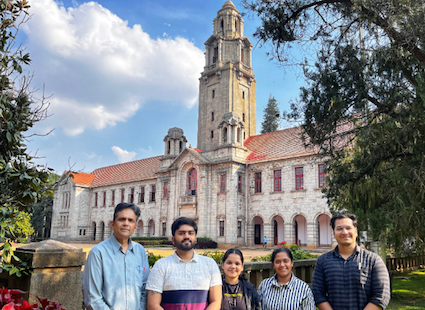Researchers at IISc set to boost immunotherapy in non-responsive cancer cells
December 12, 2023 | Tuesday | News
A proof-of-concept at this point, with more experiments to be done
In a new study, researchers at the Indian Institute of Science (IISc), Bengaluru tried to understand how different types of cancer cells respond to IFN-γ activation. They found that only some types of cancer cells respond well to IFN-γ activation, while others don’t. They also suggest some approaches that can be used to make these non-responsive cancer cells better respond to immunotherapy.
Cancer immunotherapy primes a patient’s immune system to better find and destroy cancer cells, improving upon the body’s natural ability to fight tumours. Contemporary immunotherapy approaches aim to stimulate immune cells called T cells to target tumours. In this process, the production and functioning of a cytokine (a small signalling protein) known as Interferon-gamma (IFN-γ) are essential for the immune system to eliminate tumours effectively.
The team found that cancer cell lines derived from the liver and the kidney showed increased production of nitric oxide (NO) and lactic acid upon IFN-γ activation. This, in turn, increased the production of toxic reactive oxygen species (ROS) leading to oxidative damage, which eventually kills the cancer cells. The team also observed that lactic acid plays an important role in the cancer cells’ response to immunotherapy.
Also, cancer cell lines derived from the colon and skin did not produce NO or lactic acid even after being treated with IFN-γ, indicating that they might respond poorly to immunotherapy.
Further experiments need to be carried out in animal models to see if certain compounds targeting metabolism can boost anti-tumour responses to hard-to-treat cancers, in synergy with IFN-γ activation during immunotherapy.









